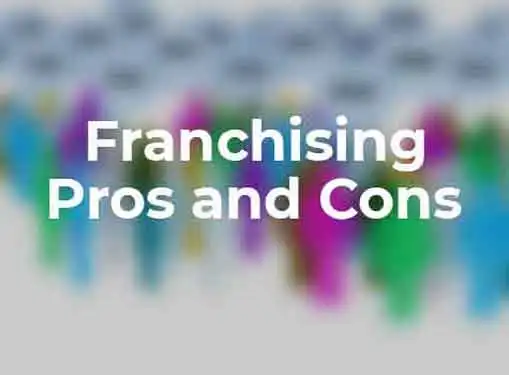Why Buy a Franchise
Franchising Pros and Cons
Why buy a franchise? The main reason is that you can benefit from the advantages of franchising. Is it a no-brainer? Absolutely not! The grass isn't always greener on the other side.
When you drive by the local fast food franchise, your eyes get big and your mouth starts to salivate. Not because you're hungry, but because you want what they have - the easy life of a franchise owner.

Over the years you've convinced yourself that franchise guys have it made - a cookie-cutter business plan, pre-fabricated personnel policies, and marketing that makes your company's ads look like they were created by a kindergartener. If you had those resources at your disposal, you would be rolling in profits with enough left over to take your business to the next level and beyond.
But is franchise ownership really all it's cracked up to be? Do franchise owners really have it easier than entrepreneurs who own non-franchised operations?
To be fair, franchises do have some advantages over non-franchised businesses. However, they also have some downsides that non-franchised companies don't even have to think about.
The Pros
In their favor, franchises offer business owners the opportunity to participate in a business plan that has proven itself effective time and time again. The bigger the franchisor, the more efficient the franchise will be in its ability to duplicate the success of the parent company.
Typically, franchises also receive assistance in other areas such as buying equipment, training personnel, locating reliable suppliers, marketing their products, and maintaining accurate financial information. These benefits alone might make franchising seem like a no-brainer to a struggling small business owner.
But not so fast. Franchising has advantages. But it also has some disadvantages that you need to consider . . .
The Cons
The first disadvantage of franchising is the cost. Franchisors require a substantial initial franchise fee from their franchisees as well as ongoing fees based on a percentage of sales. If you thought financing your start-up was expensive, think about how much harder it would be to add a franchise fee to your startup costs.
Franchises also face geographical limitations that non-franchised businesses don't even think about. When a business owner purchases a franchise license, the license specifies a franchise territory. Go outside that territory, and the franchisee risks stepping on another franchisees toes and the possibility of losing their franchise altogether.
Additionally, franchises are subject to certain restrictions designed to maintain uniformity across the franchise. For example, if you own a restaurant you are free to change your menu however you see fit to respond to the needs of your customers.
That's not the case with franchised restaurants. Franchised eating establishments are limited to the menu items approved by the parent company. These restrictions are not only inconvenient, but also potentially damaging to the bottom line of businesses that rely on flexibility to satisfy their clientele.
The Bottom Line
Before you decide to franchise, take some time to research your options. Meet with several franchise reps to ascertain the costs and limitations involved with owning a franchise. After getting the information you need, weight the pros and cons, and make your decision accordingly.
Share this article
Additional Resources for Entrepreneurs



Conversation Board
We greatly appreciate any advice you can provide on this topic. Please contribute your insights on this topic so others can benefit.